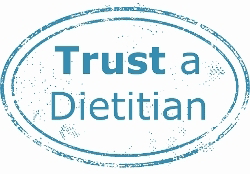Bariatric surgery is carried out for primarily for health reasons. If you believe you will benefit from bariatric surgery you will need to meet national guidelines for an operation, which have been drawn up by NICE (National Institute for Clinical Excellence) these are:-
- A body mass index (BMI) 35kg/m2 with a weight-related medical condition such as Type 2 diabetes, high blood pressure, high cholesterol, sleep apnoea, or
- A BMI of 40kg/m2 without weight-related illness.
If you want to, you can work out your own BMI by dividing your weight in kilograms by your height in metres squared e.g. (weight) 95kg ÷ (height) 1.5m x 1.5m = BMI 42. An “ideal” body weight would be a BMI of 19-25.
It is important to understand that although bariatric surgery can be successful in reducing your weight and body mass index, it is unlikely that you will reach the “ideal” BMI. However, the intention is to help you to lose 50-70% of the extra weight you are carrying and therefore improve your health and quality of life.
Before being considered for surgery you will need to have been seen in a consultant bariatric surgeon and a bariatric Dietitian who will look at your eating behaviour and any existing medical conditions. They will recommend a personalised programme to help prepare you for surgery. This will need to be followed for at least 6 months and is likely to include dietary advice, medication, blood tests, tests on your heart or lungs and, where appropriate, psychological support.
It is recommended that you join BOSPA (British Obesity Surgery Patients Association – (www.Bospa.org) who can offer support to patients.
The main types of bariatric surgery are:-
- Intragastric balloon
- Laparoscopic gastric band
- Laparoscopic Roux-en-Y gastric bypass
- Sleeve gastrectomy
Gastric balloon
It stays in place for 6 months. On average, patients lose 10-20% of their excess weight with the balloon.
Gastric band
The gastric band is a silicone band which is fitted around the upper part of the stomach to make it into an hourglass shape so that it restricts the amount that can be eaten. The band can be adjusted to make it tighter by filling it with fluid through an access port which sits under the skin below your breastbone. The band is not filled when it is inserted but there is often some post-operative swelling to the stomach which can cause restriction. When this swelling subsides, you will probably feel hungry again and be ready for your first fill at 6-8 weeks post-operatively. You are advised to have 2 weeks off work. The band results in average of 50-60% excess weight loss over two years.
Gastric bypass
The Roux-en-Y gastric bypass is usually done as a keyhole operation and works by restricting the amount you can eat and also limiting the amount of nutrients and calories which can be absorbed during normal digestion. Patients can lose a significant amount of their excess weight with this operation and many patients with type 2 diabetes find that their diabetes goes into remission or they don’t need to take as much diabetic medication. On average 70% excess weight loss occurs over 2 years.
Sleeve gastrectomy
The sleeve gastrectomy is a “halfway house” to a gastric bypass. The stomach is divided into one long column and the part which is no longer needed just stays closed off within your abdomen rather than being removed. Restriction of food intake leads to weight loss but the digestive process is not altered as it would be with the bypass. Sleeve gastrectomy is carried out on patients whose body mass index or illnesses mean that the risks outweigh the benefits of the gastric bypass. However, at a later stage the surgeon may agree to convert the sleeve gastrectomy to a full gastric bypass once the patient has lost a significant amount of weight. Weight loss is similar to gastric bypass up to one year after operation.





